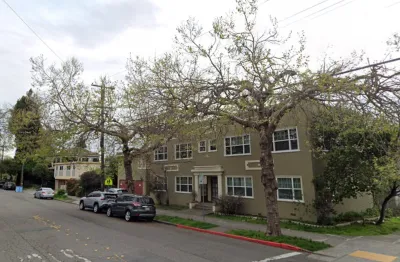The city that invented single-family zoning is finally reckoning with its history of exclusion.

The city of Berkeley, which pioneered single-family zoning as an exclusionary tool in the early 20th century, is working to reverse decades of restrictions that have limited multi-family development.
According to a San Francisco Chronicle article by Darrell Owens, Berkeley began allowing high-density apartments in the 2000s, but continued to restrict them in most neighborhoods. Meanwhile, single-family homes remain out of reach for the vast majority of residents, with median sale prices of $1.6 million. “On Thursday, Berkeley’s City Council is poised to rectify this regrettable history by voting on the final draft of its ‘Middle Housing’ ordinance. The proposed rezoning would allow the construction of more low-density, multifamily homes.”
For Owens, “Berkeley’s plan is superior to the strategy of adding accessory dwelling units to the back of residential lots” because it preserves more open space and backyard privacy by building up. Owens also points out that multi-family buildings have a lower carbon footprint.
While the city council unanimously supported the ordinance, there was debate over how dense is too dense. For Owens, the key is to have the same density limit in all neighborhoods. “That’s the crucial point: to abolish exclusionary zoning.”
The ordinance approved by the City Council on Thursday permits buildings of up to three stories and up to eight units on a typical 5,000 square foot lot. The ordinance applies citywide, with the exception of the city’s hilly neighborhoods, where denser development could increase fire risk.
FULL STORY: Is Berkeley finally ready to atone for its single-family housing sins?

Planetizen Federal Action Tracker
A weekly monitor of how Trump’s orders and actions are impacting planners and planning in America.

Vehicle-related Deaths Drop 29% in Richmond, VA
The seventh year of the city's Vision Zero strategy also cut the number of people killed in alcohol-related crashes by half.

As Trump Phases Out FEMA, Is It Time to Flee the Floodplains?
With less federal funding available for disaster relief efforts, the need to relocate at-risk communities is more urgent than ever.

Berkeley Approves ‘Middle Housing’ Ordinance
The city that invented single-family zoning is finally reckoning with its history of exclusion.

SEPTA Budget Slashes Service by 45 Percent
The Philadelphia-area transit agency is legally tasked with maintaining a balanced budget. Officials hope the state will come to the rescue with additional funding.

Connecticut Governor Vetoes Housing Bill
Gov. Lamont reversed his view on a controversial affordable housing bill that would have required municipalities to zone for set amounts of affordable housing to receive state funding.
Urban Design for Planners 1: Software Tools
This six-course series explores essential urban design concepts using open source software and equips planners with the tools they need to participate fully in the urban design process.
Planning for Universal Design
Learn the tools for implementing Universal Design in planning regulations.
Heyer Gruel & Associates PA
JM Goldson LLC
Custer County Colorado
City of Camden Redevelopment Agency
City of Astoria
Transportation Research & Education Center (TREC) at Portland State University
Camden Redevelopment Agency
City of Claremont
Municipality of Princeton (NJ)





























